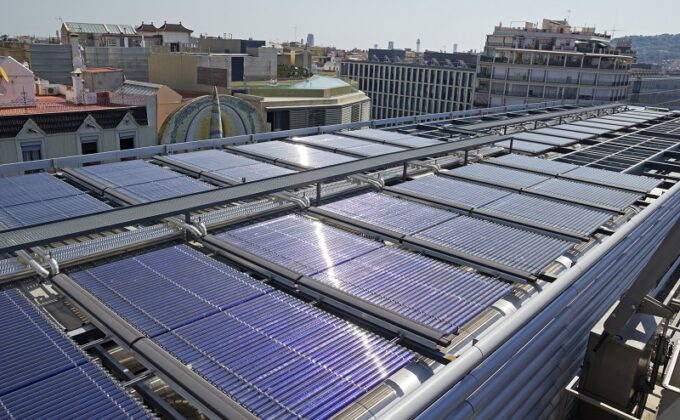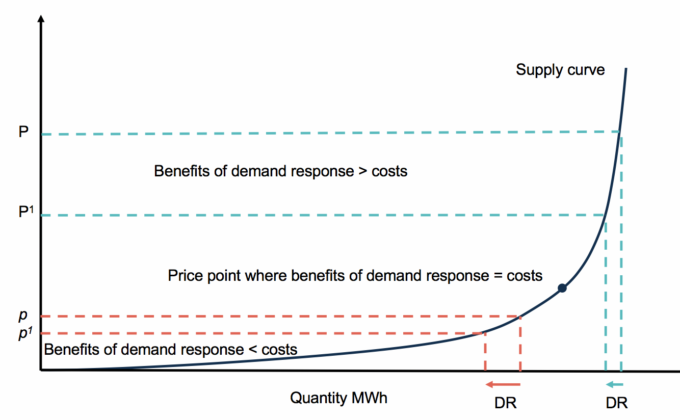Filter >>
Content Filter:
In a RAP webinar presentation, David Farnsworth, Jim Lazar, and Jessica Shipley discussed considerations for ensuring that electrification of space heating benefits consumers, the power grid, and the environment, as well as regulatory and policy tools for implementing the transition… View Summary +
If the video is not visible, please accept all cookies to enable the player. Space heating is an important opportunity for beneficial electrification—but the types of opportunities vary significantly by region, building type, and policy landscape. RAP’s November… View Summary +
RAP’s definition of beneficial electrification asserts that an electrified end use must satisfy at least one of the following conditions, without adversely affecting the other two: Saves consumers money over the long run; Enables better grid management; and Reduces… View Summary +
The U.K.’s marketwide capacity mechanism for electricity provides a solution to a supply problem that has yet to emerge, writes Phil Baker. A targeted strategic reserve is likely to be a more cost-reflective alternative, he argues. In 2014 Great… View Summary +

When we think of the complex transition to clean energy, we often think in terms of broad “how” questions. One question rightfully gaining increasing attention across the EU is how to address energy poverty as part of the clean energy… View Summary +

The PJM market in the United States and the integrated electricity market in the EU are two examples of competitive wholesale electricity markets. As such, both approach the task of delivering reliable electricity to consumers at a reasonable cost from… View Summary +
Burbank Water and Power (BWP) is a 50,000-customer, community-owned municipal utility in the Los Angeles area. BWP has implemented an advanced smart grid network, and did so with no rate increase to consumers. How did they do this?… View Summary +

我们很高兴有机会就最近发布的中国可再生能源配额政策的“第二次征求意见稿”发表建议。基于对该草案的理解,以及我们在RPS和配额政策方面的长期国际经验,并对中国可再生能源政策设计和电力市场改革的持续参与。我们提出一些初步看法,与前一版草案的意见保持一致,此外还给出了一些新的建议。 我们的主要建议简要总结如下。首先,我们认为,与在2018年4月看到的先前草案相比,这一配额设计草案取得了许多重大进展。同时,我们认为还有一些更好的完善政策的方法,供您考虑。建议更多考虑以下几个核心领域:(1)年度配额实施以及额外的灵活性和长期目标的可能值; (2)绿色证书价格透明度,以及集中管理拍卖的可能值; (2)明确与FiT和竞争性资源配置相关的绿色证书的分配问题; (3)降低购买者可能弃电的风险; (4)省政府实施面临的挑战,中央政府对配额设计的指导价值,以及随着时间的推移,建立多省绿色证书市场; (5)分布式发电和可再生能源跨省交易的绿色证书相关条款的明确和规则; (6)实施单一的、全国范围的、低价配额补偿标准,以减少不必要的复杂性; (7)明确自愿性绿色电力市场与配额之间的关系。 我们理解,中国提议的可再生配额比其他地方实施的RPS政策有更复杂的目标和限制:即近期的主要目标是通过减少弃电来增加可再生能源消纳,并且随着时间的推移,开始通过市场机制来弥补可再生能源的任何“高于市场”的成本,而不必像当前的可再生能源基金一样,由政府募集再下放。 FiT以及竞争性资源配置均在用于支持可再生能源的增长,因此配额政策不需要单独用于此目的。同时,配额需要与新兴电力市场有效互动,并且需要现有的和可能的新方法来支持这些市场中可再生能源的财务可行性。这仍然是一套非常复杂的要求,使中国在设计和实施配额制时具有挑战性。因此,没有“理想”的配额设计,任何草案都有优点和缺点,以及各类权衡。到目前为止,我们为中国解决这些复杂性而作出的努力深表赞赏。 请点击右栏”Download Document(下载文件)”查阅全文。 These comments are also available here in English. View Summary +
In joint comments on the recently released “Second Consultation Draft” of a renewable energy quota policy in China, RAP joins the Energy Foundation China and Center for Resource Solutions to suggest areas for increased emphasis, clarification, and policy improvements. Our views… View Summary +
Explicit demand response provides an opportunity for “aggregated” customers to participate in wholesale electricity markets and profit from their demand flexibility without the risks and costs presented by dynamic tariffs. In doing so, these customers can significantly reduce the price of energy purchased by suppliers by offering a competitive alternative… View Summary +

